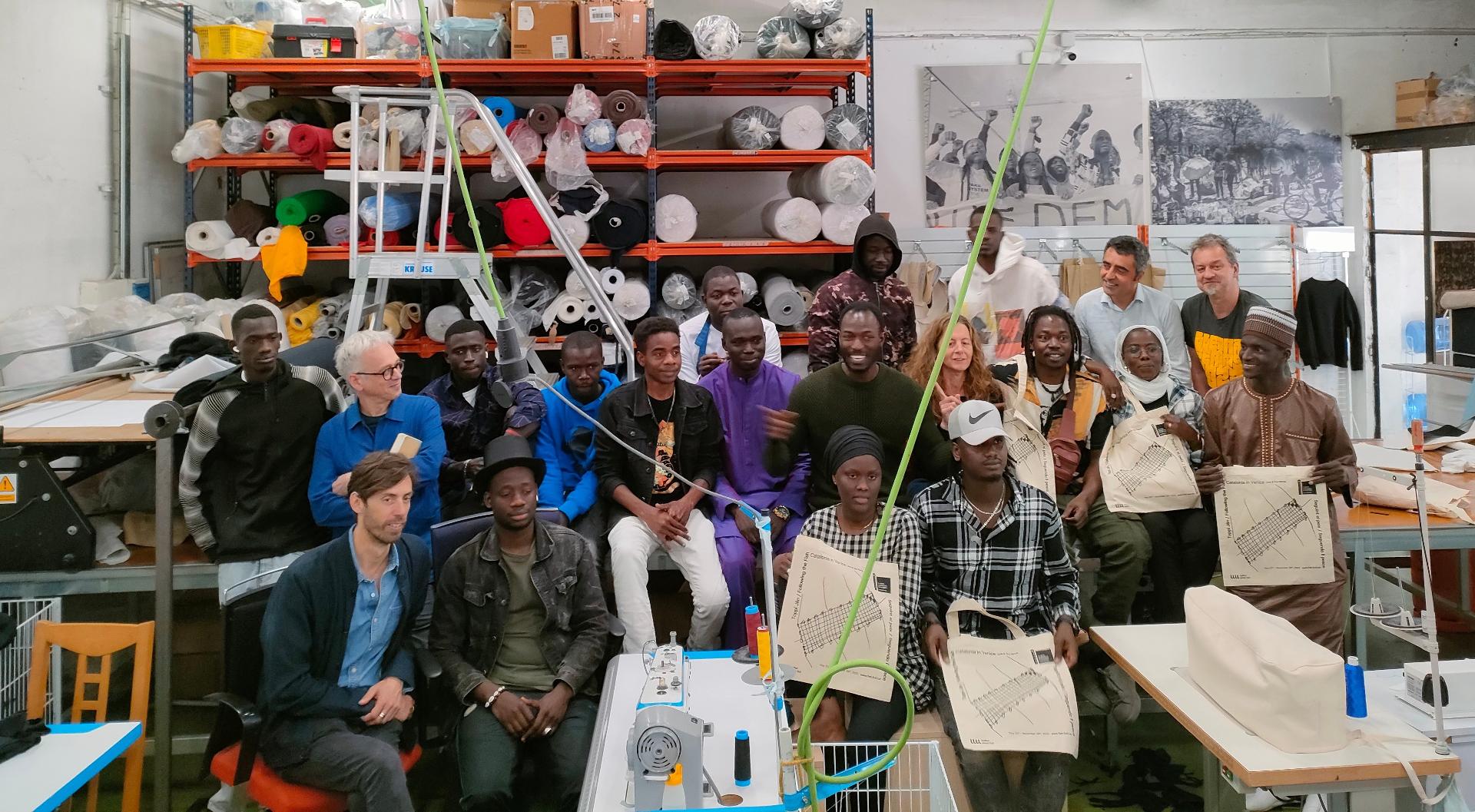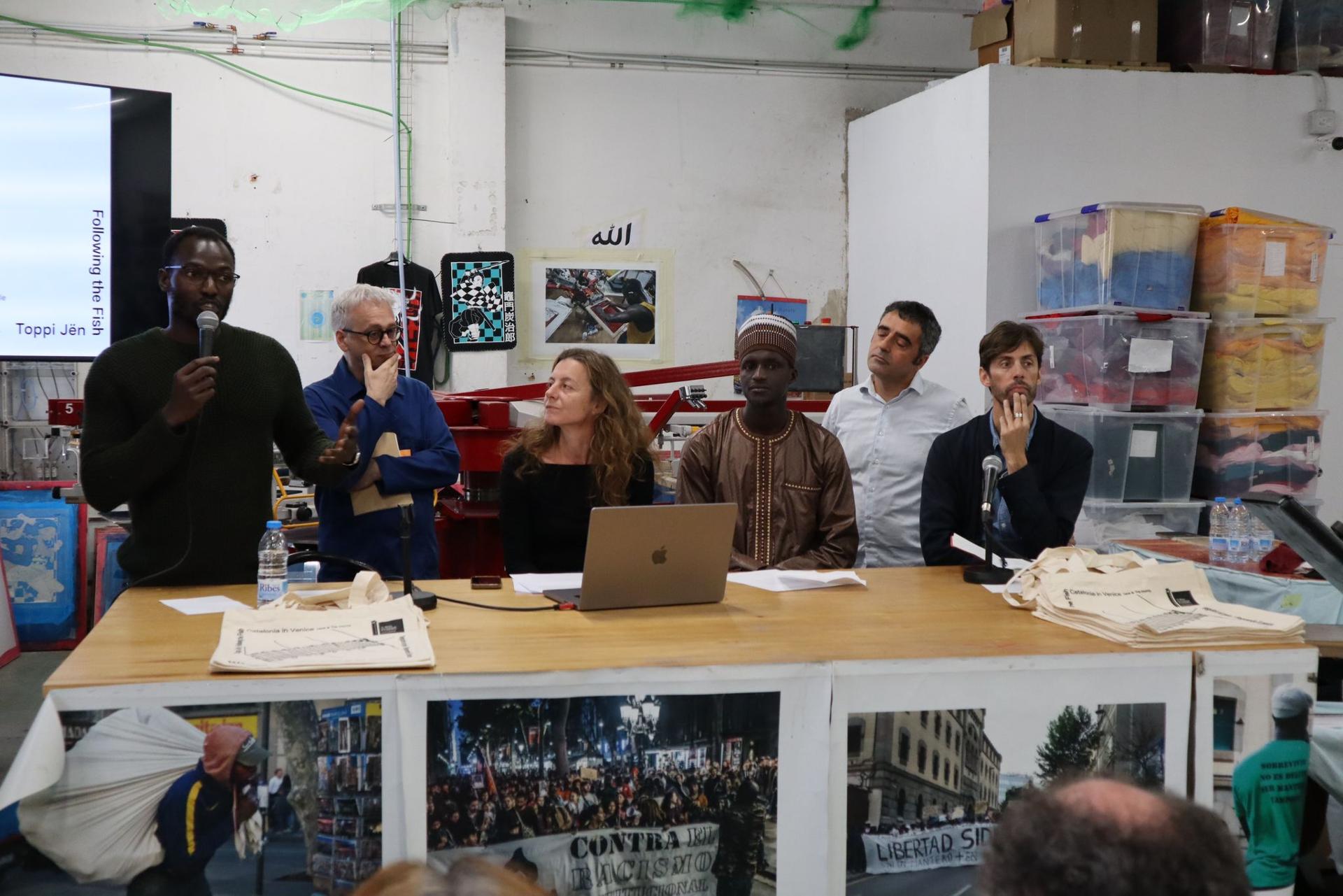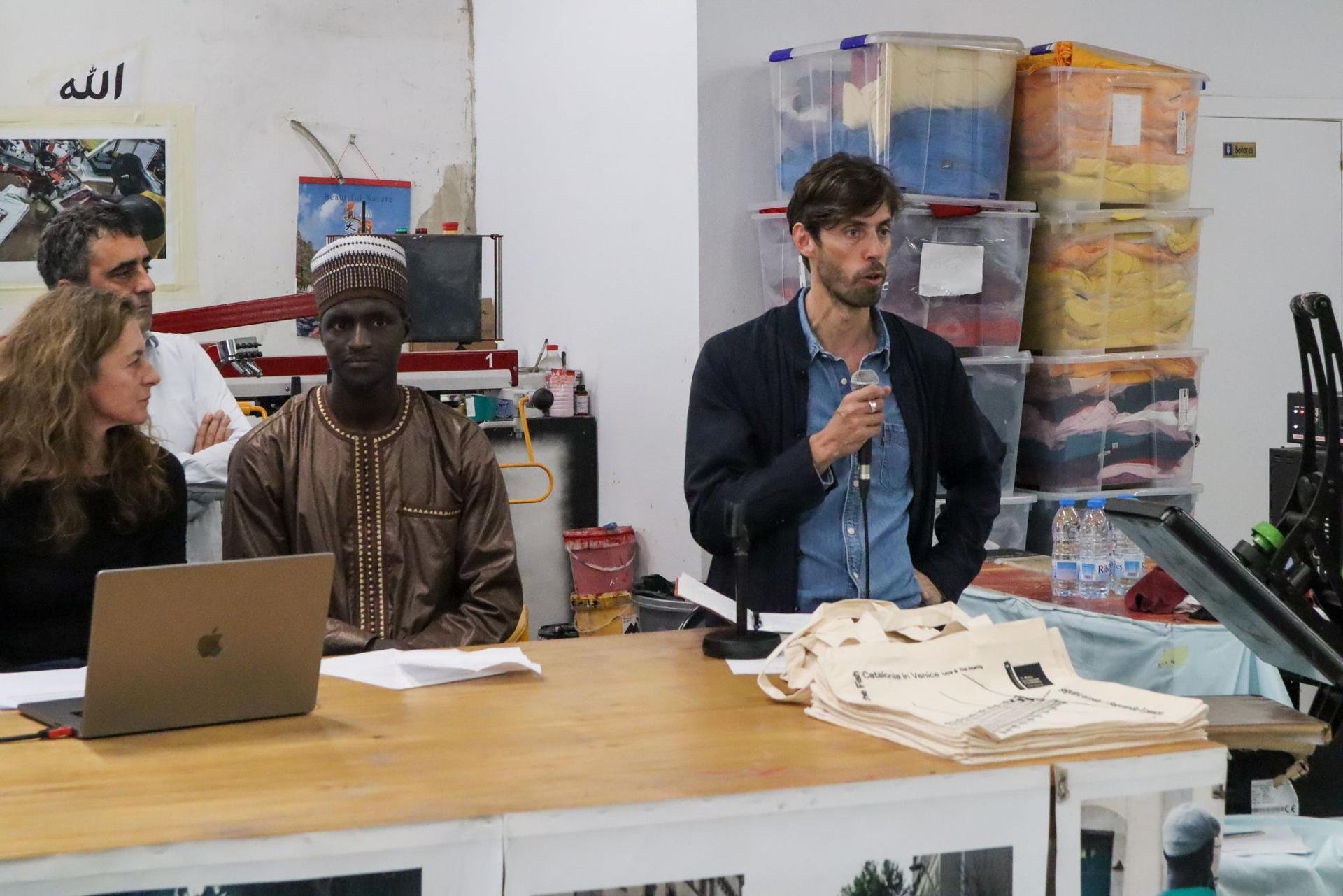Today was presented Catalonia in Venice_ Following the Fish. The project curated by Leve (Eva Serrats, Daniel Cid and Francesc Pla) in collaboration with the Top Manta and produced by The Institut Ramon Llull can be seen from May to November at the 18th International Architecture Exhibition – La Biennale di Venezia, as part of the program of the Eventi Collaterali.
The director of The Institut Ramon Llull, Pere Almeda, stated: “Catalan culture is displayed at Venice Architecture Biennale with a multi-layered transformation project, representing the reverse of the far-right xenophobic discourse present in many countries now, such as in Italy. The project curated by Leve with the collaboration of Top Manta questions the dominant paradigms, highlighting the valuable knowledge of their experience as a migrant collective and raising new interrogations about architecture and urban space.”
The curator of Biennale Architettura 2023, Lesley Lokko, has chosen the theme of The Laboratory of the Future, putting Africa and the challenges of decolonization and decarbonization in the spotlight.
Through the critical and proactive perspective of migrant communities on the European territories of arrival, Following the fish resituates the places from which architecture creates and the role of architects. The project focuses on urbanism, working spaces, and housing from the perspective of the African diaspora in Catalonia, looking to identify counter-hegemonic architectural possibilities. In this sense, Eva Serrats, from Leve, explained that “at the working sessions at Can Batlló have been forged complicities and trust, have been sought a shared language, and have been prefigured new ways of living in our cities. It is important to observe that along the process of encounter and dialogue has become evident that the questions posed by the Sindicat actually are the same posed by architecture nowadays.”
Shared struggles such as anti-racism, non-exploitation, the right to the city, food sustainability, or feminism arise through diverse elements and actions of the project. Lamine Sarr, from Top Manta, says that “This is surely the first time in history that a collective of racialized migrants, with a unique project in favour of human rights such as the unlicensed “Union of Barcelona Street Vendors ” from Barcelona, plays a leading role in an event as the Venice Biennale, historically reserved for the cultural and artistic elites of the global north. We believe this is an act of social justice. Giving space to black people is part of building a truly anti-racist society”.
The project showcased in Venice is based on two elements: the results of the laboratory - The Reparation Atelier - , and the Street Market, an installation in Venice that convenes the narrative of the African migrant diaspora in Catalonia. The Reparation Atelier is aimed at students from several international architecture and design schools, including the Vallès, Barcelona and Reus Schools of Architecture (ETSAV-UPC, ETSAB-UPC and ETSAURV, respectively), Lund University and Politecnico de Milano. Started in January 2023, the results will be presented at the exhibition in Venice. From July 3-7 a final workshop will be held as an opportunity for conclusions and discussion. This is where the project, through a call to action, becomes a laboratory of the future.
In the installation that will take shape in Venice, the nave of the old Cantieri Cucchini becomes a continually transforming Street market. Floating just over the ground will be the "mantas" or sheets that would normally hold the items for sale but will here instead display the contents of the trip made by the migrants. Following the Fish presents an extremely realistic and critical story captured in the "mantas", which show the condemnation and the refuges of migrants once they arrive in Europe. The narrative is accompanied by documents that expand on its content, including new contributions, references and comments through drawings, writings and images.
The title Following the Fish evokes the story behind the project. In Senegal, artisanal fishing was a source of food and wealth for the local economy until the massive extraction by the EU industrial ships to manufacture food for fish farming forced the young fishermen to leave their country and travel to Europe in the dugout canoes they used to fish with, to run away from the poorness and the hunger provoked by the plundering and the colonization by the global powers.
A key point in developing the project was the Top-Manta workshop, where they manufacture clothes. The workshop per se contains the impulses of the laboratory of the future defended by Lesley Lokko in her curatorial text for the Biennale of Architecture of Venice 2023. In this space, in several work sessions, were collected ideas and were listed the projects of the Repair Workshop while reflecting on the urban problems faced by the migrant community and elaborating part of the exhibition material.
There are three highlights in the program of events of the project presented in Venice: a Silent march of members of the Top-Manta and migrant communities in Venice marking the opening of the exhibit on the morning of May 18, a Migrant meeting between members of Top-Manta and Venetian migrant associations on May 20, and the closing and debate days at The Reparation Atelier, with the participation of students from international schools of architecture and design, including the Vallès School of Architecture (ETSAV-UPC), and the Schools of Architecture in Barcelona (ETSAB-UPC) and Reus (ETSA-URV), Lund University and Politecnico di Milano, from July 3 to 7.










